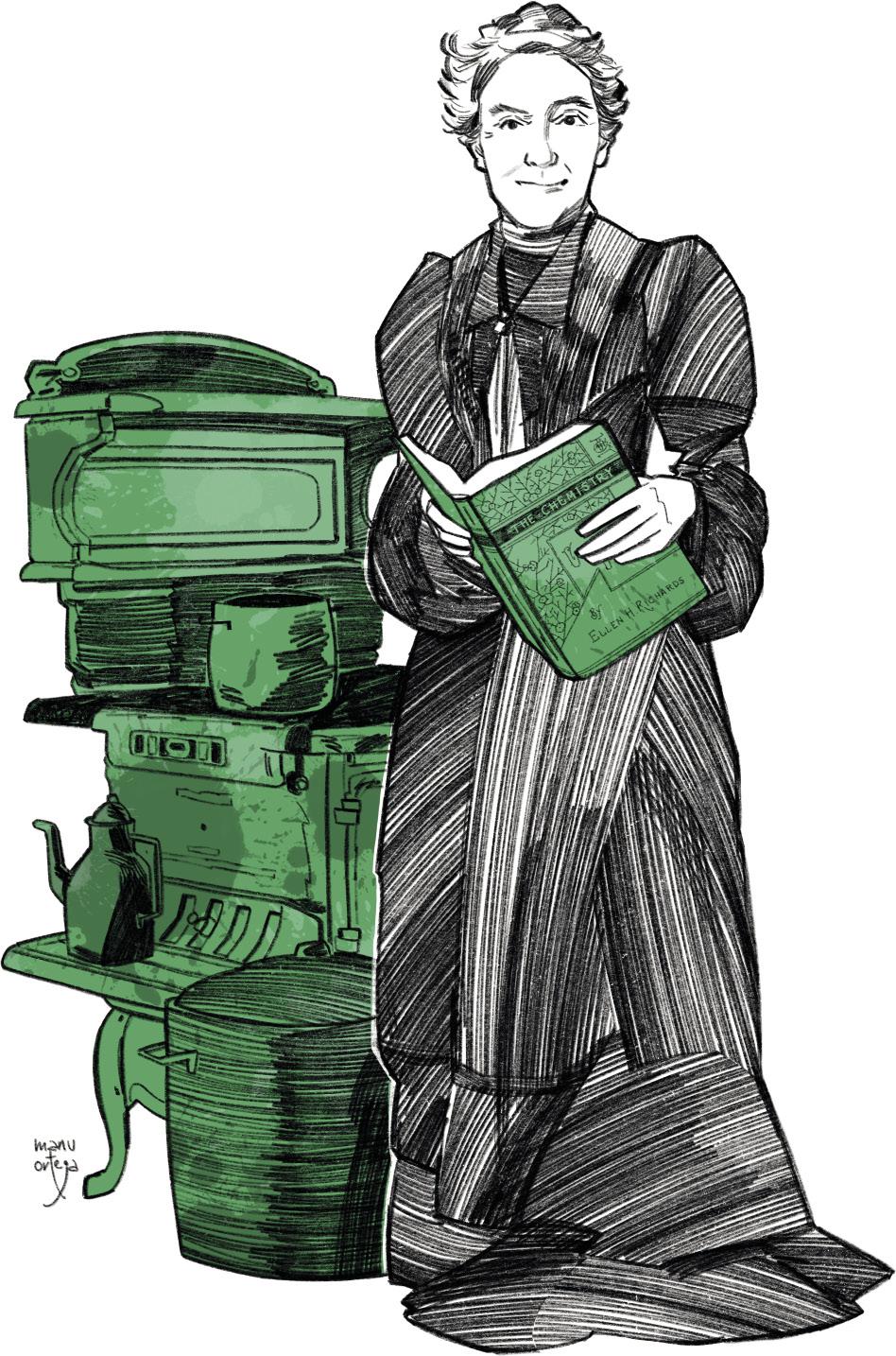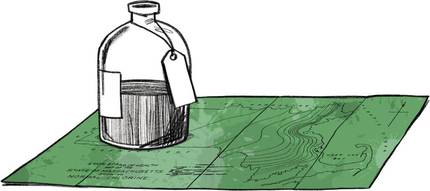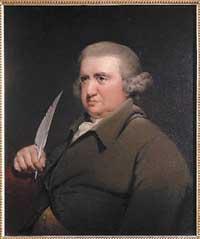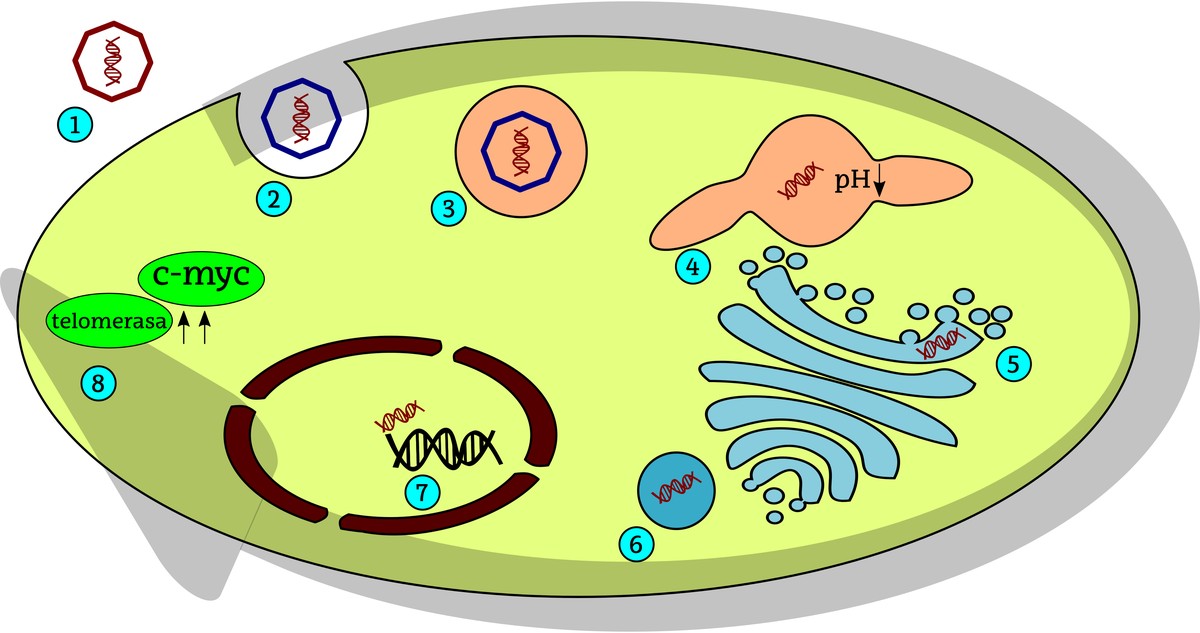Ellen Swallow: science to improve society
2021/09/01 Etxebeste Aduriz, Egoitz - Elhuyar Zientzia Iturria: Elhuyar aldizkaria

1879, Poughkeepsie, New York. “Women need some chemistry as a self-defense,” he said. About 300 women. “It is up to women to carry out the transformation. It will not be a simple job. If we settle for ignorance, we will have ignorance, but if we demand knowledge, because we are aware of the value of knowledge, then we will succeed.”
Ellen Henrietta Swallow knew some chemistry. I knew well that behind the kitchen and household chores there was a lot of chemistry, and from there, Swallow thought that, moving science to homes, you could make the way to a better society.
I was nineteen years old in northern New York when they founded the Vassar College for Women's Higher Education. And he decided that, at any price, he was going to study there. He taught, took care of the children and cleaned up the houses until he raised enough money.
Vassar started studying science at College at age 26. He particularly liked astronomy and chemistry, and he chose chemistry, hoping it would serve him to improve his environment. That was the main objective of Swallow: “Otoi nigatik, dear Annie—wrote to a cousin—served me for something in a sinful world.”
When he tried to find work as a chemist, he only found obstacles. They didn't want women anywhere. He was tried at the newly created MIT Technology Institute in Boston. And at MIT, despite his doubts, he was accepted as a “special student”.
I used to be a woman and unique at MIT. In that environment he thought the best thing would be to be a basket and as feminine as possible, and he even fixed clothes to his classmates when they asked for it. “I think I have gained strong allies for not being radical, for taking the classroom as a privilege rather than giving up female obligations,” he wrote to his parents. He achieved the respect of his peers and teachers and surprised the most skeptical professor with his doers.
In 1876, he was able to create the Women's Lab at MIT. He also had to put the money in his pocket, where he worked as a teacher in exchange for the music. She taught biology, chemistry and mineralogy to about 500 women. The foods and products sold in the shops around were analysed and mahogany powder was discovered in cinnamon, sand and salt in sugars and arsenic on the wall paper. These discoveries served to implement the first Massachusetts food law in 1882.
That same year he published his first book: The Chemistry of Cooking and Cleaning, which he wrote to bring chemistry closer to women. And on that path I would write others. And that is that, as households and the food of families were in the hands of women, their education in science was fundamental, according to Swallow. He also realized that, although science and technology were revolutionizing industry, they were barely reaching homes: “Our kitchens are very bad, the ventilation and sanitation of many of our homes cannot be worse. Why don’t our homes keep up with our mechanical workshops?”
He did numerous experiments and measurements at home. He stopped burning coal and oil to put gas, measured how much gas was needed to prepare concrete dishes, installed fans to improve air quality, measured water quality and improved sewage, etc. When a friend took a new house, Swallow's inaugural gift was a water analysis.
He worked a lot on water analysis, even on a larger scale. For the Massachusetts Health Committee, it analyzed the water supply of 80 percent of the population, 40,000 samples. He completed chlorine maps to predict contamination. And he saw that in many places water was contaminated with industrial waste and urban waste water. As a result of this work, for the first time in America, water quality standards were established and a sewage treatment plant was built.
In 1892 he proposed a new discipline as “the science of normal lives”: ecology. It was the first time this word was used in America. It was created by German Ernst Haeckel, a couple of decades earlier, with the aim of agglutinating the relationships between living beings and their environment, but it was not successful. He wanted to reclaim the word swallowk and give him a very different vision. It focused on the environmental conditions created by humans and humans, and how these conditions affected health and life. He wrote to Haeckel asking for permission to speak like this. He said yes. But, very shortly afterwards, the British Medical Journal enacted the use of this word to “investigate animal and plant life in natural conditions.”
For Swallow it was dangerous that the human being did not enter the ecology and that it was not harmful to both human health and the environment. “He has advanced in everything else—he wrote about humanity—but in his intimate personal relationships with nature and with the forces of nature, he behaves as if he were the owner of the rural beasts and as if he were the owner of all the laws of nature, without understanding them.”
Swallow continued to work for a better society, with an increasingly social vision. He created nutrition brochures to improve the American diet, developed the first school feeding programs and set up experimental kitchens to offer people who needed food as cheap but nutritious as possible.
Forgetting his old submissive attitudes, he strongly criticized the situation of Boston public schools at the 1896 American Public Health Association meeting. From the study of 186 schools it was found that only 13 had adequate ventilation, in 77 the soil was never cleaned, the toilets were not cleaned, the sewers were discovered, etc. 5,000 cases of illness and 200 deaths directly related to the poor state of schools.
He established the FEAST law for his life: food, exercise, amusement, sleep and task, that is, food, physical exercise, fun, sleep and work. She got up every day at 5:30, and she was on a three-mile tour, next to her husband, as long as she was. “Human energy is the most precious thing we have,” he wrote. “Eating proper foods, exercising, having fun, and sleeping would be optimized.”
He died at 68 with heart disease. His wish to “be useful for something” was well fulfilled. Ellen Henrietta Swallow served not only for something, but for many.

Gai honi buruzko eduki gehiago
Elhuyarrek garatutako teknologia







